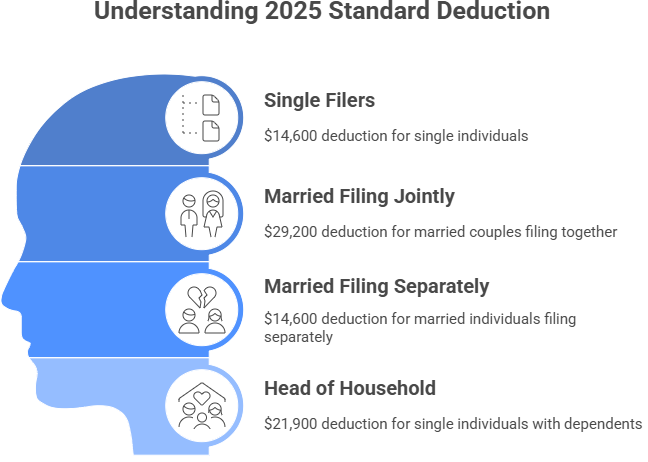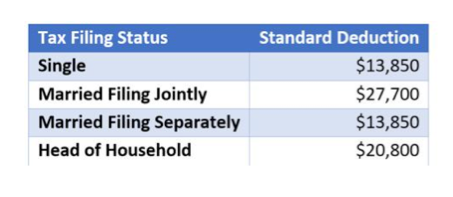The Foreign Earned Earnings Exclusion Explained: A Guide to Enhancing Your Typical Deduction
The Foreign Earned Revenue Exemption (FEIE) is a crucial tax stipulation for U.S. citizens and resident aliens living abroad. It allows eligible expatriates to exclude a substantial portion of their foreign-earned revenue from government tax obligations. Recognizing the subtleties of FEIE can cause substantial tax financial savings. Nonetheless, many individuals neglect important details that might impact their eligibility and advantages. Discovering these elements might expose possibilities for improved tax results.
Understanding the Foreign Earned Earnings Exclusion
Lots of migrants look for possibilities abroad, understanding the Foreign Earned Earnings Exemption (FEIE) is essential for managing their tax obligation commitments. This stipulation allows united state citizens and resident aliens living overseas to leave out a particular amount of their gained revenue from government taxes. The FEIE was developed to minimize the tax obligation worry on individuals who live outside the United States, recognizing the distinct monetary difficulties they might deal with.

Qualification Needs for FEIE

Just how to Declare the FEIE
To efficiently claim the Foreign Earned Income Exemption (FEIE), taxpayers should initially validate their qualification based on details standards - FEIE Standard Deduction. The process entails a number of steps, including filing the appropriate kinds and offering necessary paperwork. Understanding these treatments and needs is essential for making best use of tax advantages while living abroad
Eligibility Demands
Qualification for the Foreign Earned Revenue Exemption (FEIE) hinges on conference particular criteria established by the IRS. To qualify, people must be united state citizens or resident aliens who make revenue while functioning abroad. They require to develop an international tax obligation home, which means their primary workplace is outside the USA. Additionally, candidates have to meet either the Bona Fide House Examination or the Physical Visibility Examination. The Bona Fide Residence Test needs that a taxpayer stays in a foreign country for an entire tax obligation year, while the Physical Presence Test requires costs at the very least 330 complete days in an international nation throughout a 12-month period. Meeting these requirements is vital for claiming the FEIE.
Filing Refine Steps
How can one efficiently browse the procedure of asserting the Foreign Earned Revenue Exemption (FEIE)? Individuals should determine their qualification based on the physical visibility examination or the bona fide residence test. When confirmed, they should complete internal revenue service Kind 2555, which information foreign income and residency. This form has to be affixed to their yearly tax obligation return, commonly Kind 1040. It is necessary to properly report all international gained income and guarantee compliance with the internal revenue service standards. Furthermore, taxpayers must preserve proper documentation, such as foreign income tax return and evidence of residency. By adhering to these actions, people can effectively assert the FEIE and possibly minimize their taxable income considerably, enhancing their total monetary position.
Calculating Your Foreign Earned Income Exclusion
While many migrants look for to maximize their economic advantages abroad, comprehending the calculation of the Foreign Earned Income Exemption is essential for exact tax obligation coverage. The Foreign Earned Earnings Exclusion permits certifying people to leave out a specific quantity of their foreign revenues from united state tax, which is changed every year for rising cost of living. To calculate this exemption, expatriates need to determine their total international gained revenue, which normally includes wages, incomes, and professional fees gained while living in an international nation.
Next, they have to finish IRS Type 2555, giving details regarding their international residency and work standing. FEIE Standard Deduction. It is very important to fulfill either the authentic home test or the physical visibility examination to qualify for the exclusion. As soon as these factors are developed, the optimum allowable exemption amount is used, decreasing the person's taxed income substantially. Accurate calculations can cause substantial tax financial savings for migrants living and functioning abroad
The Influence of FEIE on Various Other Tax Obligation Benefits
The Foreign Earned Income Exclusion (FEIE) can affect a person's eligibility for sure tax obligation benefits, including the typical deduction. By excluding foreign earned revenue, taxpayers might find their adjusted gross earnings impacted, which consequently can affect their certification for different tax obligation credits. Comprehending these interactions is crucial for maximizing tax obligation end results while living abroad.
Communication With Criterion Reduction
When people certify for the Foreign Earned Earnings Exemption (FEIE), their Read Full Article eligibility for the common reduction may be affected, potentially altering their general tax liability. The FEIE allows taxpayers to omit a specific amount of earned earnings from U.S - FEIE Standard Deduction. tax, which can bring about a minimized taxed earnings. Consequently, if the excluded earnings goes beyond the typical reduction, it can reduce the benefit of claiming that deduction. Additionally, taxpayers who make use of the FEIE might locate that their ability to detail reductions is additionally affected, as certain expenses might be influenced by the exemption. Recognizing this interaction is important for migrants to optimize their tax benefits while ensuring conformity with united state tax obligation laws
Eligibility for Tax Credit Reports
Guiding with the intricacies of tax obligation credit reports can be challenging for migrants, particularly considering that the Foreign Earned Earnings Exclusion (FEIE) can significantly impact qualification for these advantages. The FEIE enables qualified individuals to leave out a significant portion of their international revenues from united state tax, yet this exemption can likewise affect access to various tax obligation credits. Taxpayers that utilize the FEIE may discover themselves disqualified for credit ratings like the Earned Revenue Tax Credit Report (EITC), as these credit reports usually call for taxed income. Furthermore, the exemption may limit the ability to declare specific reductions or credit scores related to dependents. Understanding the interplay in between the FEIE and readily available tax obligation credits is important for expatriates intending to optimize their tax situation.

Typical Errors to Avoid When Declaring FEIE
Generally, expatriates experience numerous pitfalls while claiming the Foreign Earned Income Exclusion (FEIE), which can result in pricey errors or missed out on possibilities. One frequent mistake is failing to fulfill the physical visibility or special info authentic house examination, which is crucial for eligibility. In addition, expatriates often ignore the requirement to submit Type 2555 properly, leading to incomplete or inaccurate entries.
An additional typical error involves incorrectly calculating foreign gained earnings, as several do not account for all appropriate income resources. Some expatriates mistakenly think they can exclude all their earnings, not aware of the constraints on the exemption quantity. Furthermore, disregarding to maintain correct documentation, such as traveling dates and residency condition, can endanger a claim. Finally, misunderstanding the implications of the FEIE on various other tax credits may result in unintentional tax obligation obligations. Awareness of these challenges can facilitate a smoother claiming procedure and make the most of prospective benefits.
Resources for Expats Navigating United State Taxes
Steering U.S. tax obligation responsibilities can be testing for migrants, specifically after running into risks in asserting the Foreign Earned Earnings Exclusion (FEIE) To aid navigate these complexities, a variety of sources are offered. The internal revenue service web site gives comprehensive information on tax laws, types, and FAQs especially customized for expatriates. Furthermore, companies like the American People Abroad (ACA) and the Deportee Tax click here to read obligation Professionals offer advice and support to assure conformity with tax obligation laws.
On the internet online forums and communities, such as the Deportee Online forum, permit migrants to share experiences and understandings, fostering a supportive setting for those encountering comparable challenges. Tax preparation software program, like copyright and H&R Block, often consists of functions made for expats, making the declaring procedure a lot more straightforward. Engaging with these sources can equip expatriates to better understand their tax obligations and optimize advantages like the FEIE.
Often Asked Questions
Can I Declare FEIE if I'M Freelance Abroad?
Yes, freelance individuals abroad can declare the Foreign Earned Income Exclusion (FEIE) To certify, they should meet details requirements concerning residency and earnings, guaranteeing they abide by internal revenue service standards for migrants.

Is the FEIE Applicable to Foreign Pensions?
The Foreign Earned Income Exemption (FEIE) is not relevant to international pension plans. Pension plans are taken into consideration unearned income and do not qualify for the exemption, which especially puts on made income from work or self-employment abroad.
What Takes place if I Return to the U.S. Mid-Year?
If an individual go back to the U.S. mid-year, they may require to change their tax situation. Their qualification for sure deductions and exclusions, consisting of the Foreign Earned Earnings Exemption, might be affected by their residency condition.
Can FEIE Be Claimed With Various Other Reductions?
Yes, the Foreign Earned Earnings Exclusion (FEIE) can be asserted alongside various other deductions. Treatment should be taken to ensure proper compliance with tax obligation regulations, as specific constraints may apply based on specific circumstances.
How Does FEIE Impact State Tax Obligation Obligations?
The Foreign Earned Income Exemption can decrease a taxpayer's government revenue tax obligation responsibility, yet it does not immediately influence state tax obligation obligations, which vary by state and may still call for coverage of foreign revenue.
Numerous migrants look for chances abroad, recognizing the Foreign Earned Income Exclusion (FEIE) is crucial for managing their tax obligation responsibilities. By leaving out foreign gained earnings, taxpayers might discover their modified gross income impacted, which in turn can influence their certification for various tax credit reports. Steering via the complexities of tax credit scores can be testing for expatriates, particularly considering that the Foreign Earned Earnings Exemption (FEIE) can substantially affect qualification for these advantages. Taxpayers that utilize the FEIE may find themselves ineligible for credit reports like the Earned Earnings Tax Credit (EITC), as these credit histories commonly call for taxable income. Maneuvering U.S. tax obligation commitments can be testing for migrants, specifically after running into challenges in declaring the Foreign Earned Revenue Exemption (FEIE)